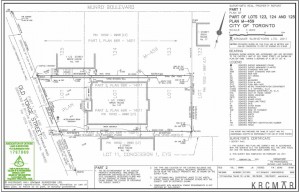
We’ve all been there- your neighbor has been a little bit lax in trimming their trees and maybe the branches are starting to overhand your property. Maybe that same neighbor is working on a home improvement project and is using a small corner or your property to store some lumber for a few weeks without asking. While rude, such encroachments are small, sometimes temporary, and are frequently overlooked as nuisances or simply disregarded in the spirit of neighborliness. A lot of times, absent some delineation, homeowners are generally unaware of the exact location of the boundary, and for the most part, that is all well and good. If this is you, you likely will throw a wave and a smile now and then when you see the neighbor and life marches on.
What if, however, the issue is more serious? What if the neighbor has been using part of your property (unbeknownst to you) for a decade for his shed? Or has planted part of his tomato garden on your property? This could be a huge headache! More and more I’m seeing these issues come through the office, and it brought me to write this post to clarify some misconceptions.
The first thing to do when you are on either side of these issues is not to panic and act aggressively towards the neighbor. Take a deep breath. The underlying goal is to try to understand the everyone’s position and come to a resolution that works for everyone. Most times the facts are not in dispute, and it is a simple matter of one party or another, either intentionally or negligently encroaching onto the neighbor’s parcel. If for example it’s a wood fence post, or a portion of a PVC shed, the encroachment can often be removed at little cost, that is usually the best course, as it permanently resolves the issue. If the encroachment is not movable, or it is very expensive to remove the encroachment, there are basically two different approaches.
The first approach is to rework the boundary line so that the encroaching party “acquires” some of the burdened property’s land, rendering the “encroachment” no longer encroaching. The civilized way to do this is by agreement, with the encroaching party, in most cases, bearing the costs of the surveying, any legal fees associated with a boundary line rearrangement, etc. In layman’s terms, you could just tell your neighbor ……..”It’s 3 feet in my back corner go ahead and take it.”
Note, in this case, unless there is an actual boundary line rearrangement with a deed recorded in the clerk’s office, the tax map parcel will not show any change in bulk acreage between the two lots. This is a complicated and expensive process to have attorneys fix this. Here is where this gets even messier as there would be no change in the real estate taxes, which is something to think about. Into perpetuity, the party granting the property to their neighbor would be paying taxes on a small piece of property that they don’t own.
Occasionally, although rarely, there is a true disagreement on the location of the boundary line. This can occur as a result of old maps and descriptions being used, and a genuine professional disagreement between surveyors as to the true location of the properties that were deeded to the adjoining neighbors.
In the event that you and your neighbor are not able to peaceably resolve, with appropriate counsel, the boundary line issue, litigation can be maintained by one party or the other. A frequent topic in a boundary line dispute discussion is whether the encroaching party has acquired title to the land underneath the encroachment by what is known as “adverse possession”. The sorts of acts which must be proven to established title by adverse possession vary widely, but is generally stated that the adverse possessor must openly, continuously, exclusively, adversely and notoriously possess his or her neighbor’s property for more than ten years in order to acquire title. Recently, the statute governing adverse possession in New York was amended to provide that “de minimus” encroachments such as fences, sheds, gardens, plantings and the like, would, under most circumstances, be considered “permissive” and thus not “adverse”. Thus, your neighbor’s garden or lilac hedge on your backyard is not, under the new statute, giving your neighbor ownership of any part of your backyard. Similarly, lawn mowing, installing a typical fence or a portable shed or other such structure will not, under the new statute, give your neighbor rights to your property.
There is still somewhat of an argument about acts of possession which the new statute deems “permissive” but which took place over a ten year period prior to the enactment of the recent statute in 2008.
Adverse possession cases can be expensive to litigate, involving professional surveyor testimony and many aspects of factual proof which need to be researched and presented. Before embarking on an adverse possession litigation, either as a plaintiff or defendant, it is essential to consider the costs and legal fees and expert fees, as well as personal stress and effort, as compared with what is to be gained or lost in the possible outcomes. It is possible that one or the other party may have to resort to a title insurance policy for indemnification and/or payment of counsel fees to either prosecute or defend a title claim.
If you are purchasing a property with such an issue, you also may run into title insurance and liability issues.
As you can see from the above, it is best to consult an experienced practitioner familiar with these sorts of disputes. If your neighbor does the same thing, in almost every instance the matter can be worked out to a point where the result of that arrangement is far better than the result of years of contested litigation.



